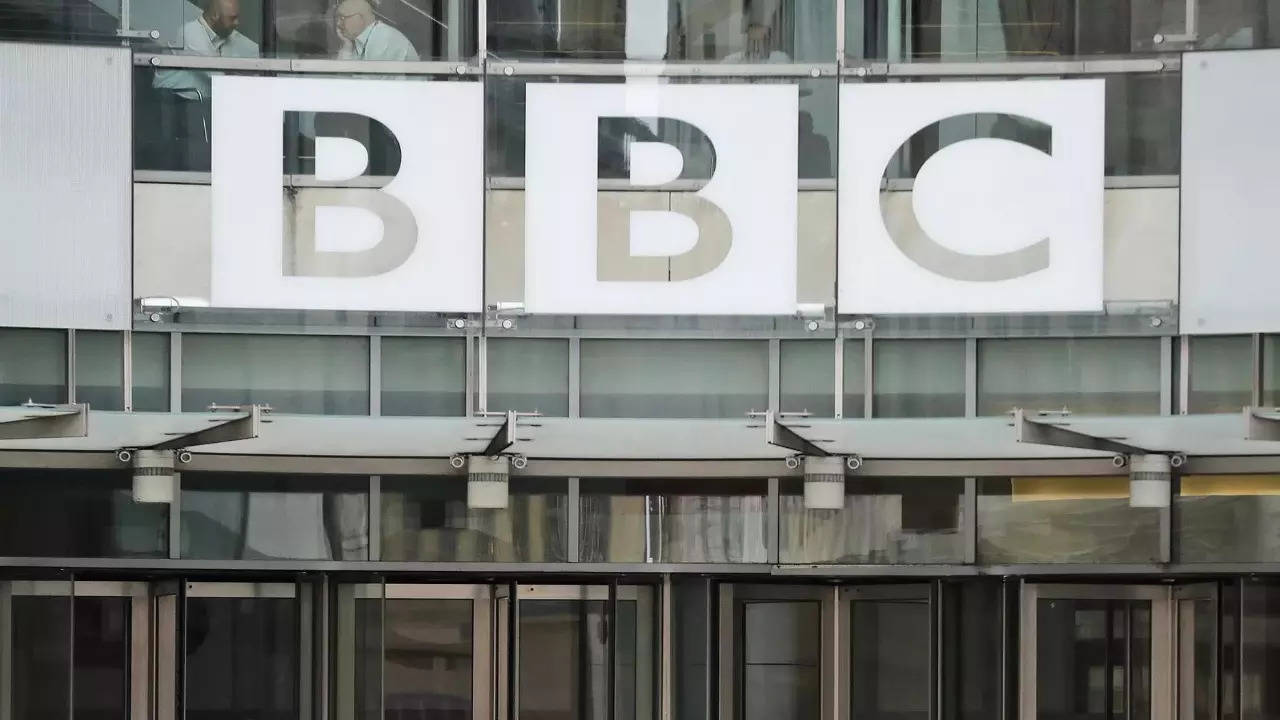World
UK govt gives no reaction to ‘surveys’, but sources say officials ‘closely monitoring’ them
LONDON: The UK government, UK prime minister Rishi Sunak, and even UK opposition parties did not provide any official reaction to the income-tax “surveys” carried out on the UK national public broadcaster’s offices in New Delhi and Mumbai.
There was no official statement from No. 10 or the Foreign, Commonwealth and Development Office (FCDO). However, TOI understands from sources within the FCDO that officials there were closely monitoring reports of the searches.
Reactions from the Indian diaspora in the UK were mixed.
“Indian tax authorities who raided the BBC are independent of the government and should be allowed to do their job. If the BBC has done nothing wrong, they will be cleared. This has nothing to do with the Modi documentary,” said Jayu Shah, spokesman for FISI (Friends of India Society International) UK, who was one of the people who protested outside the BBC in London over the documentary.
Adit Kothari, founding member of the Indic Society, who helped organised that protest, whose organisation seeks to dismantle what it claims is a negative Western narrative about India, said: “It’s imperative for those indulging in hypocrisy to do some soul searching. BBC were sent similar notices by the I-T department during the UPA regime, which suggests that they are a serial offender when it comes down to the question of accounting malpractices. Linking this I-T survey to the BBC hit-job documentary is intellectual bankruptcy as the notices were generated in 2021, to which the BBC never responded. The BBC has a long history of accounting malpractices and tax avoidance as they have previously been pulled up by the British tax authorities for similar offences,” he said, referring to around 800 BBC TV and radio presenters being accused of tax avoidance in the UK after being hired through personal service companies.” That resulted in them having not only to apologise to the people and staff but also shelling out millions as fines.”
However Pratik Dattani, advisory board member of Bridge India, a progressive UK-India think tank based in London, said: “After several decades of the BBC having offices in India, sudden tax raids just four days after the Supreme Court rejected the Indian government ban on its Modi documentary seems very convenient. The actions seem like sending an overt political message. Media freedom is important for the health of a vibrant democracy and this is a strategic faux pas from the Indian government — the actions will focus global attention on India’s media freedom, and give more air to a documentary the government just wished would go away.”
There was no official statement from No. 10 or the Foreign, Commonwealth and Development Office (FCDO). However, TOI understands from sources within the FCDO that officials there were closely monitoring reports of the searches.
Reactions from the Indian diaspora in the UK were mixed.
“Indian tax authorities who raided the BBC are independent of the government and should be allowed to do their job. If the BBC has done nothing wrong, they will be cleared. This has nothing to do with the Modi documentary,” said Jayu Shah, spokesman for FISI (Friends of India Society International) UK, who was one of the people who protested outside the BBC in London over the documentary.
Adit Kothari, founding member of the Indic Society, who helped organised that protest, whose organisation seeks to dismantle what it claims is a negative Western narrative about India, said: “It’s imperative for those indulging in hypocrisy to do some soul searching. BBC were sent similar notices by the I-T department during the UPA regime, which suggests that they are a serial offender when it comes down to the question of accounting malpractices. Linking this I-T survey to the BBC hit-job documentary is intellectual bankruptcy as the notices were generated in 2021, to which the BBC never responded. The BBC has a long history of accounting malpractices and tax avoidance as they have previously been pulled up by the British tax authorities for similar offences,” he said, referring to around 800 BBC TV and radio presenters being accused of tax avoidance in the UK after being hired through personal service companies.” That resulted in them having not only to apologise to the people and staff but also shelling out millions as fines.”
However Pratik Dattani, advisory board member of Bridge India, a progressive UK-India think tank based in London, said: “After several decades of the BBC having offices in India, sudden tax raids just four days after the Supreme Court rejected the Indian government ban on its Modi documentary seems very convenient. The actions seem like sending an overt political message. Media freedom is important for the health of a vibrant democracy and this is a strategic faux pas from the Indian government — the actions will focus global attention on India’s media freedom, and give more air to a documentary the government just wished would go away.”






